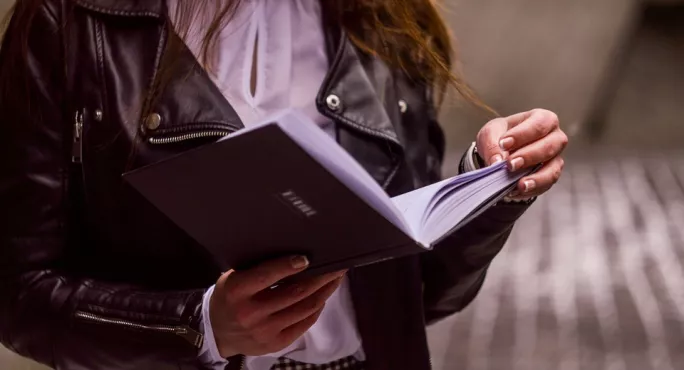9 books all Year 11s should read this summer

All teachers can offer myriad of reasons why reading matters: it increases opportunities, decreases stress, develops empathy and improves memory…the list of benefits is almost endless.
The good news is that the National Literacy Trust reported last year that an unexpected silver lining of lockdown is that it has led to increased engagement and enjoyment in reading.
The bad news is that reading ages across the UK remain low. Therefore, it’s crucial to seize the opportunity to turn our students into lifelong readers.
The summer holiday before Year 12 begins is the perfect time to set the tone for sixth form: it introduces wider independent reading, encourages developing a personal and critical response, and gives students a chance to develop their knowledge or pick up new interests across all domains in a way they maybe they haven’t had the chance to before.
Reading for pleasure: Books for Year 11s to enjoy this summer
So what should be on that list? Here are some titles that will keep their minds sharp and get creative juices flowing:
1. We Should All Be Feminists by Chimamanda Ngozi Adichie
Adichie’s critical view of society’s construction towards both men and women succinctly introduces and reframes feminism for both male and female perspectives.
I’d say this is a vital text for all students: it’s a great way to explore PSHE topics in real life and open the dialogue with them about equality.
2. Girl, Woman, Other by Bernardine Evaristo
This 2019 Booker Prize-winning novel is an absolute triumph. The story follows 12 interlinked people as they navigate everything from their bodies and sex to politics and identity.
The variety of protagonists combined with a prose style that is the antithesis of the novels read at GCSE is a sure-fire way to engage all types of students, regardless of their subject options.
3. The Great Gatsby by F Scott Fitzgerald
Fitzgerald’s jazz era text is glamorous, exciting, and it’s set across a summer that is loaded with promise and parties. Gatsby shouldn’t just be retained for A-level English literature students; it’s an accessible text that offers dozens of discussion points for your students around morality, race, love, wealth and class at an age where they are beginning to find themselves confronted with these issues.
4. Search Party by George the Poet
Sometimes the Venn diagram between poets I know and like and the poets my students know and like can look frustratingly empty but spoken word artist George the Poet always sits between us.
Popular on Instagram and the host of a hugely popular BBC podcast and YouTube channel, George Mpanga delivers sharp critiques of the world around him. Search Party is an exceptional anthology that explores politics, race, wealth, gender and everything in between.
5. The Lost Continent by Bill Bryson
I myself can distinctly remember reading the opening to The Lost Continent in my first year of sixth form, and it has stuck with me ever since.
Bryson’s autobiographical journey across America was one of the first books that made me physically laugh out loud and desperate to own a passport.
This book isn’t just about travel: it’s about escaping your hometown, the first taste of freedom that adulthood brings, and being exposed to the worlds that make up everything surrounding us.
6. Mythos by Stephen Fry
Myths underpin everything from art and literature to languages and marketing, and who better to tell us of them than Stephen Fry?
Engaging, funny and laden with endless real-world links, Mythos is a perfect summer holiday book that is ideal for developing student knowledge, regardless of what they are studying.
7. Thinking, Fast and Slow by Daniel Kahneman
Year 12 is the perfect time to start developing productivity and behavioural skills as we begin to prepare our students for independent living.
Kahneman’s bestseller is the perfect introduction to how our brains work, biases, fallacies (such as sunken cost), optimism and choice-making. These are areas students are unlikely to have encountered before, making them ripe for discussion.
8. The Bell Jar by Sylvia Plath
A staple on any teenager’s reading list, Plath’s coming-of-age novel is one that resonates across the ages.
The difficulties of being a teenager never change, and your students are sure to find themselves nodding along to narrator’s Esther’s struggles, in which the time-sensitive options of adulthood - which once seemed so far away - begin to weigh down on the narrator.
9. Shoe Dog by Phil Knight
A relatively new title, Knight’s reflections on starting sportswear empire Nike are honest, funny and motivational.
There are ups and there are downs, but, more than anything, the book is heaped with inspiration and the kind of ‘can-do’ attitude that will resonate with ambitious teens who have their whole lives ahead of them.
More suggestions like this?
It can be hard to find good book list suggestions that include a diverse mix of authors and voices. For more ideas for reading material, you can look at the Penguin Lit in Colour reading lists, the YA podcast 88 Cups of Tea hosted by Gossip Girl star Yin Chang, and the Audible book blog is always good for new suggestions.
Lauran Hampshire-Dell is a teacher and tutor
You need a Tes subscription to read this article
Subscribe now to read this article and get other subscriber-only content:
- Unlimited access to all Tes magazine content
- Exclusive subscriber-only stories
- Award-winning email newsletters
Already a subscriber? Log in
You need a subscription to read this article
Subscribe now to read this article and get other subscriber-only content, including:
- Unlimited access to all Tes magazine content
- Exclusive subscriber-only stories
- Award-winning email newsletters